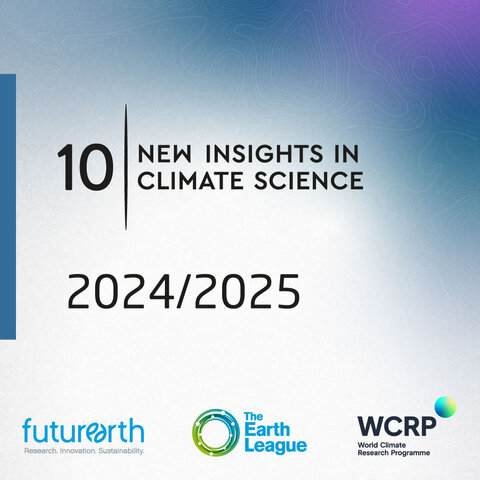
Our planet is witnessing cascading and damaging effects due to surges in temperature driven primarily by anthropogenic climate change, reveals the latest 10 New Insights in Climate Science (10NICS) report. These impacts have ripple effects on maternal and reproductive health and on one of our most vital natural carbon sinks, the Amazon rainforest, to name a few.
Launched on Monday 28 October 2024 by a consortium of globally renowned social, natural and climate scientists, the 10NICS report spans a vast range of climate research and is designed to equip policymakers with the latest and most pivotal climate research published over the past 18 months. The The latest research on the insight topics is synthesised to highlight the policy implications that can inform negotiations at COP29 and policy through 2025 and beyond.
Read the full press release here.
Read the 10NICS report here.
“This report confirms that the world faces planetary scale challenges, from the rise of methane emissions to the vulnerability of critical infrastructure. It shows that rising heat, ocean instability and a tipping of the Amazon Rainforest could push parts of our planet beyond habitable limits. Yet, it also provides clear pathways and solutions, demonstrating that with urgent, decisive action, we still can avoid unmanageable outcomes,” said Prof. Johan Rockström, co-chair of The Earth League.
Ahead of COP29, scientists are once again supporting policymakers and leaders with scientific insights that have clear policy implications for developing comprehensive mitigation and adaptation strategies. The report urges policymakers at COP29 to reflect on these insights in updating the submissions of their Nationally Determined Contributions (NDCs) (due in early 2025), and drive attention to them within negotiations, including on the pivotal issues of climate finance.
"Global temperature records continue to break, pushing the Paris Agreement's goals further out of reach and exacerbating threats to maternal health. This is particularly acute in climate-vulnerable nations as it’s compounded with limited access to education and low incomes, in addition to the breakdown of critical infrastructure which further compromises food security, sanitation and healthcare services. Preparedness for heat extremes, including early warning systems, must be a priority at the national and regional scale. Without action, the consequences could be catastrophic. Without systemic shifts, future generations will be impacted,” said Prof. Dr Jemilah Mahmood, executive director of the Sunway Centre for Planetary Health.
The report highlights that, although there is an urgent need for ambitious policies that drive significant emissions reductions, these must be perceived as fair by the citizens for them to be accepted and, hence, effective. Climate policies perceived as unfair can give rise to entrenched resistance, limiting the success of policies and in some cases contributing to civil unrest.
The ‘10 New Insights in Climate Science’ series, launched with the UNFCCC at the COPs since 2017, is a collaborative initiative of Future Earth, the Earth League and the World Climate Research Programme, synthesising the key recent developments in climate change research. This year’s report represents the collective efforts of more than 80 leading researchers from 45 countries.

